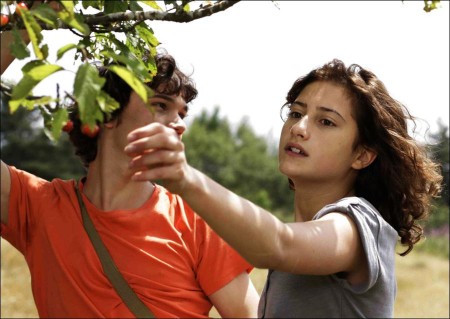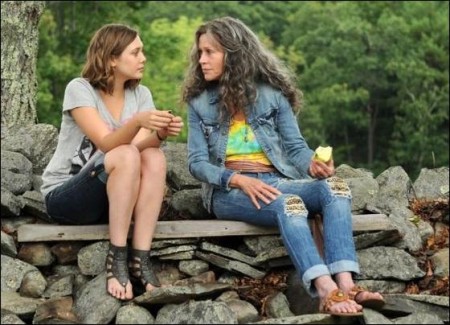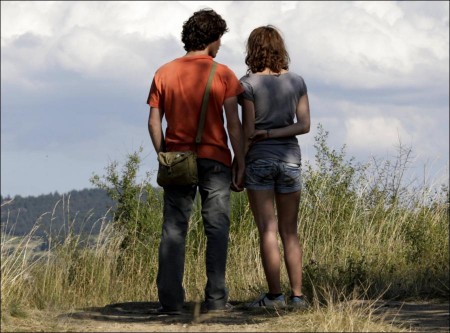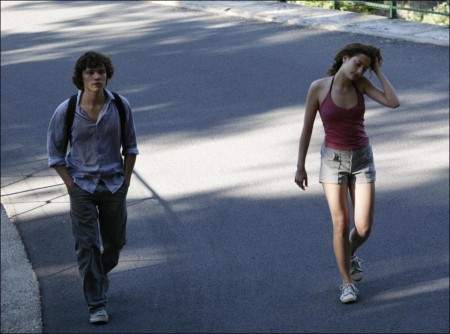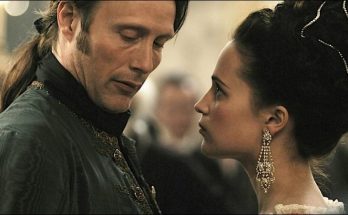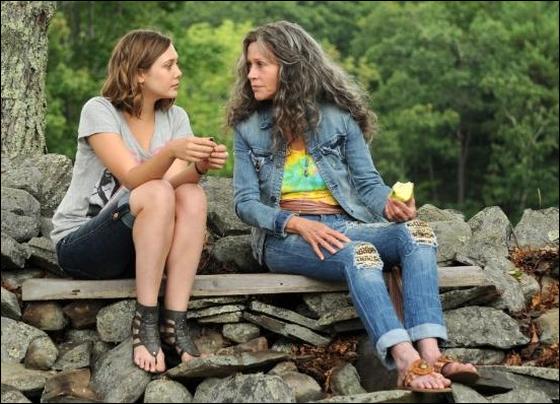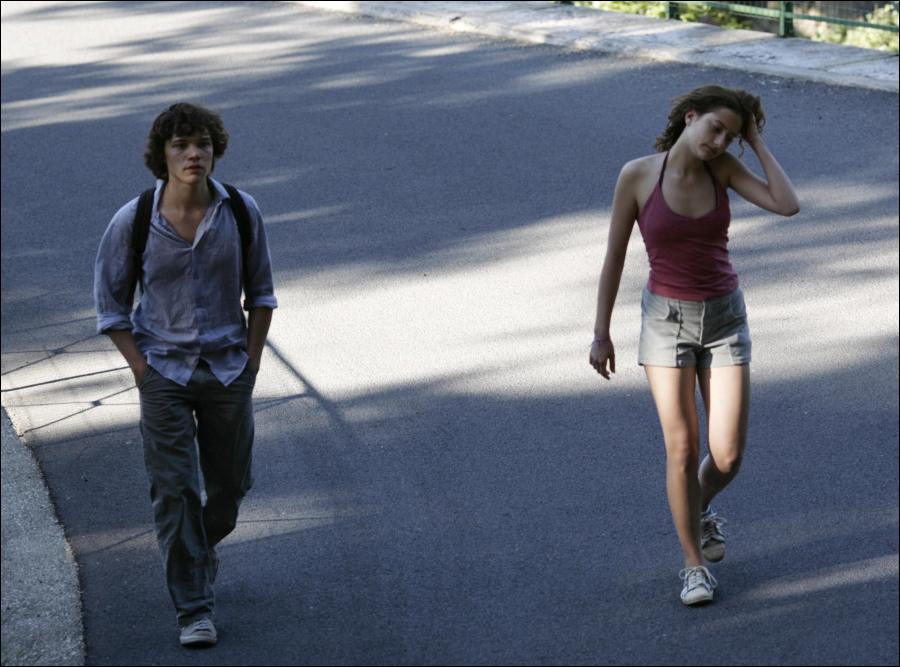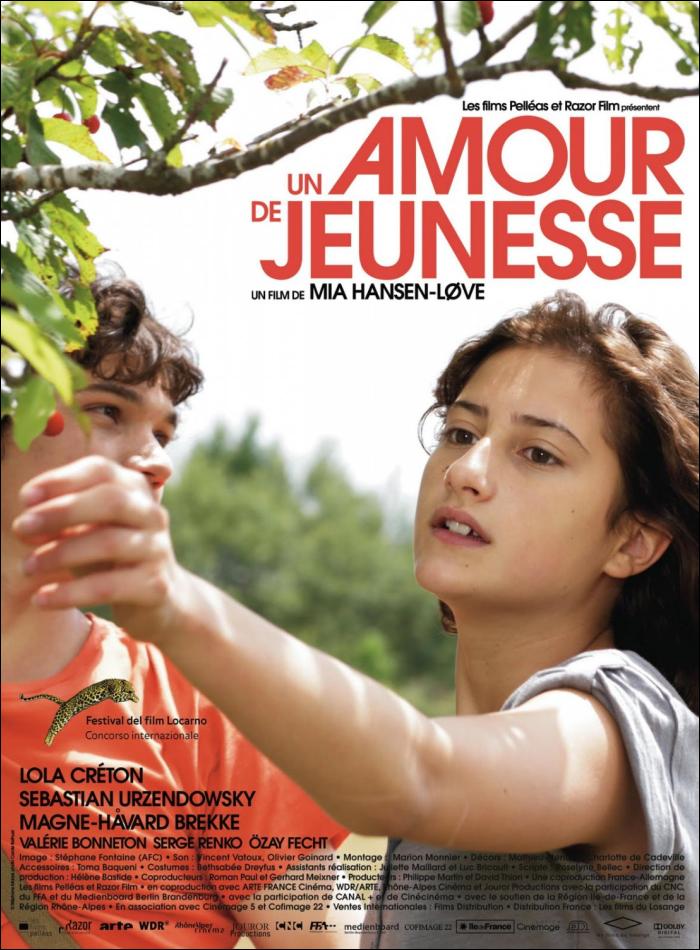Spring of 1999: 15-year-old Camille and 19-year-old Sullivan are mad about each other. Sullivan, however, wants to go to South America for a year and this drives Camille to despair. He leaves in the fall and after a while he stops writing to her. After a suicide attempt, she ends up in the hospital.
After four years she works, studies architecture and lives alone. She meets a famous architect, Lorenz, who restores her self-confidence. In 2007, Camille and Lorenz have a strong relationship. She is his assistant but she feels strong enough to set up an agency soon. She develops into a more fully formed woman, with new interests. After 7 years she sees Sullivan again. After their first meeting everything seems to go well, but a few months later the old feelings come back and her heart is torn again.
Goodbye First Love (French: Un amour de jeunesse) is a 2011 Franco-German film directed by Mia Hansen-Løve. It was selected for the main competition section at the 2011 Locarno International Film Festival.
Awards and Nominations
2011: Locarno International Film Festival: Special Mention
2011: Gijon Film Festival: Official Selection
Film Review for Goodbye First Love
The 32-year-old film-maker Mia Hansen-Løve began her career acting, notably for Olivier Assayas, whose partner she became. Then, as a director herself, she impressed audiences deeply with her breakthrough feature Father of My Children, in 2009. Un Amour de Jeunesse is a delicate love story, tender and erotic, and drenched in the idealism and seriousness of its central character, Camille (Lola Créton), looking like a very young Penélope Cruz. It is released here under the English title Goodbye First Love, which I think is slightly wrong, pre-empting audience expectations and misreading the film’s ambiguity.
This is a fluent, confident and deeply felt movie: unmistakably, if not exactly nakedly, autobiographical. As ever with this kind of personal work, there is an extra pleasure in pondering how and why the author has rewritten her own life, and if she is in complete conscious control of that process.
What emerges on screen has something of Eric Rohmer in its feeling for the languor and nameless anxiety of the very young: at one stage, Camille and her boyfriend argue amiably about the film they’ve been to see. He dismisses it as talky and complacent; she thinks it is beautiful and deep. We don’t get to find out what the film is. I’m guessing Rohmer’s A Winter’s Tale.
As a 15-year-old high-school pupil, Camille is having regular sex with a conceited and tousle-haired college student called Sullivan (Sebastian Urzendowsky). She is infatuated with him, and he to some degree with her, but does not quite share the intensity of her commitment, having already explained his settled plans to drop out of university and go on a 10-month backpacking tour of South America with a couple of buddies. Sullivan clearly envisages this trip involving many new kinds of experience, but chastity isn’t one of them.
He and Camille have a final idyllic summer together at her family’s lakeside house in Ardèche, swimming, lazing around and having sex complicated by the melancholy of imminent parting. Inevitably, calamity ensues: Camille grows up, becomes a brilliant architecture student, and a new relationship with a charismatic professor begins to heal her heartbreak. (As it happens, Hansen-Løve met Assayas, 26 years her senior, after she abandoned her study of drama in Paris and began writing for Cahiers du Cinéma, to which Assayas also contributed.) But then, almost a decade later, Camille runs into Sullivan. Things have changed. Or have they?
What is refreshing about Hansen-Løve’s movie is that it doesn’t fob its characters or its audiences off with the usual gentle hindsight-condescension about young love or first love. It is a commonplace to think that, oh, if only we could climb into a time machine and travel back to visit our teenage lovelorn selves, sobbing our hearts out in our bedrooms. If only we could hug our former selves and tell them it’s all right, and it doesn’t matter. Hansen-Løve is telling us something quite different: of course it matters. Heartbroken young love is the most intense kind, perhaps the only authentic kind. And you will never forget it and never entirely get over it.
There is something heartwrenching and abject in Camille’s getting a map of South America up on her bedroom wall and putting little pins in it to chart Sullivan’s course. He has promised to write to her, but this arrangement gradually, predictably unravels. Hansen-Løve shows the imprisonment and agony of Camille’s situation and how her architecture career enunciates her misery: designing student accommodation blocks with impractical water features and misconceived spaces for long, dreamy walks which are all too obviously governed by yearning for that last doomed summer of love. Yet the designs are spare, abstract, desiccated. She has designed herself out of them – designed herself out of her own life.
Well, Hansen-Løve studied film, not architecture, and has dramatically designed herself, or a version of herself, into the action. And what is so persuasive is the way she envisages the pair looking. Another type of director might have emphasised the poignancy of these characters’ later selves by giving Camille a different hairstyle and Sullivan a shorter haircut, maybe a beard. But Hansen-Løve keeps them looking exactly the same: the severe bob Camille initially had has long since grown out. They look and behave eerily the same as ever. Perhaps we just don’t change.
Nothing is more unreliable, more coloured by how we view our current romantic situation, than the memory of an earlier love. If the film is based on the director’s own breakup, was the burden of blame apportioned as it appears to be here? Who knows? The eight years that Camille and Sullivan were apart seems like a long time to them; the drama shrinks it to a single, dramatic heartbeat, and perhaps that is all that it was. The unromantic pain and euphoria of love are instantly revived in this outstanding film.
Goodbye First Love (2012)
Directed by: Mia Hansen-Løve
Starring: Lola Créton, Sebastian Urzendowsky, Magne-Håvard Brekke, Valérie Bonneton, Serge Renko, Özay Fecht, Max Ricat, Louis Dunbar, Philippe Paimblanc, Amélie Robin, Charlotte Faivre
Screenplay by: Mia Hansen-Løve
Production Design by: Mathieu Menut
Cinematography by: Stéphane Fontaine
Film Editing by: Marion Monnier
Costume Design by: Bethsabée Dreyfus
Set Decoration by: Marguerite Rousseau
Distributed by: Sundance Selects
Release Date: April 17, 2012
Hits: 120
